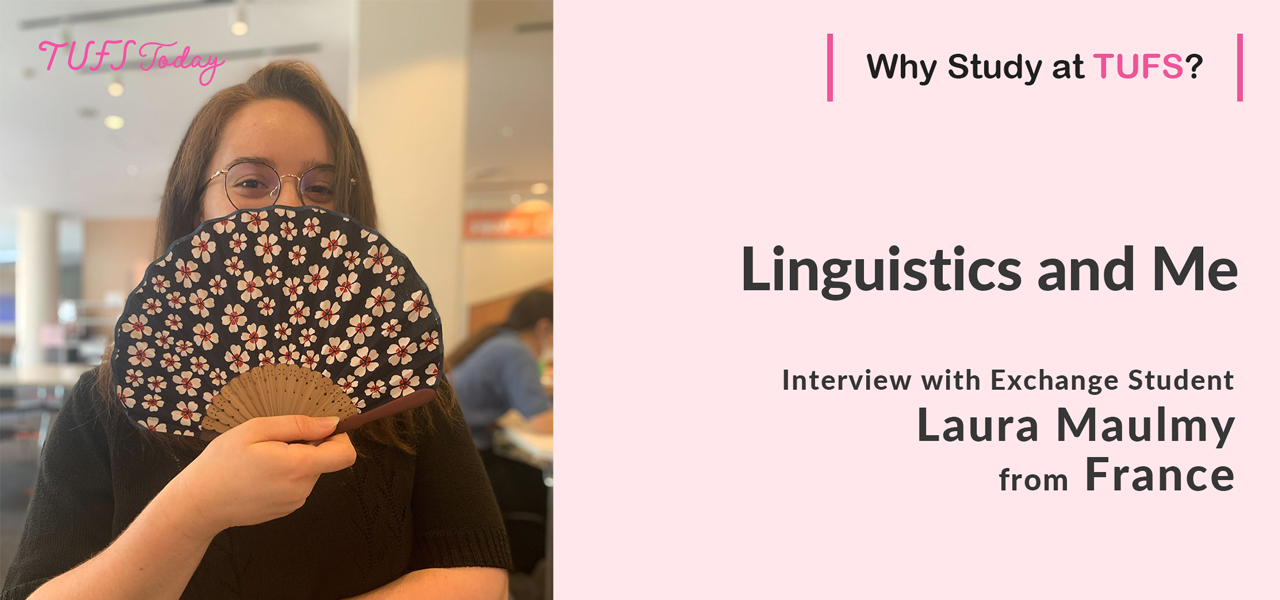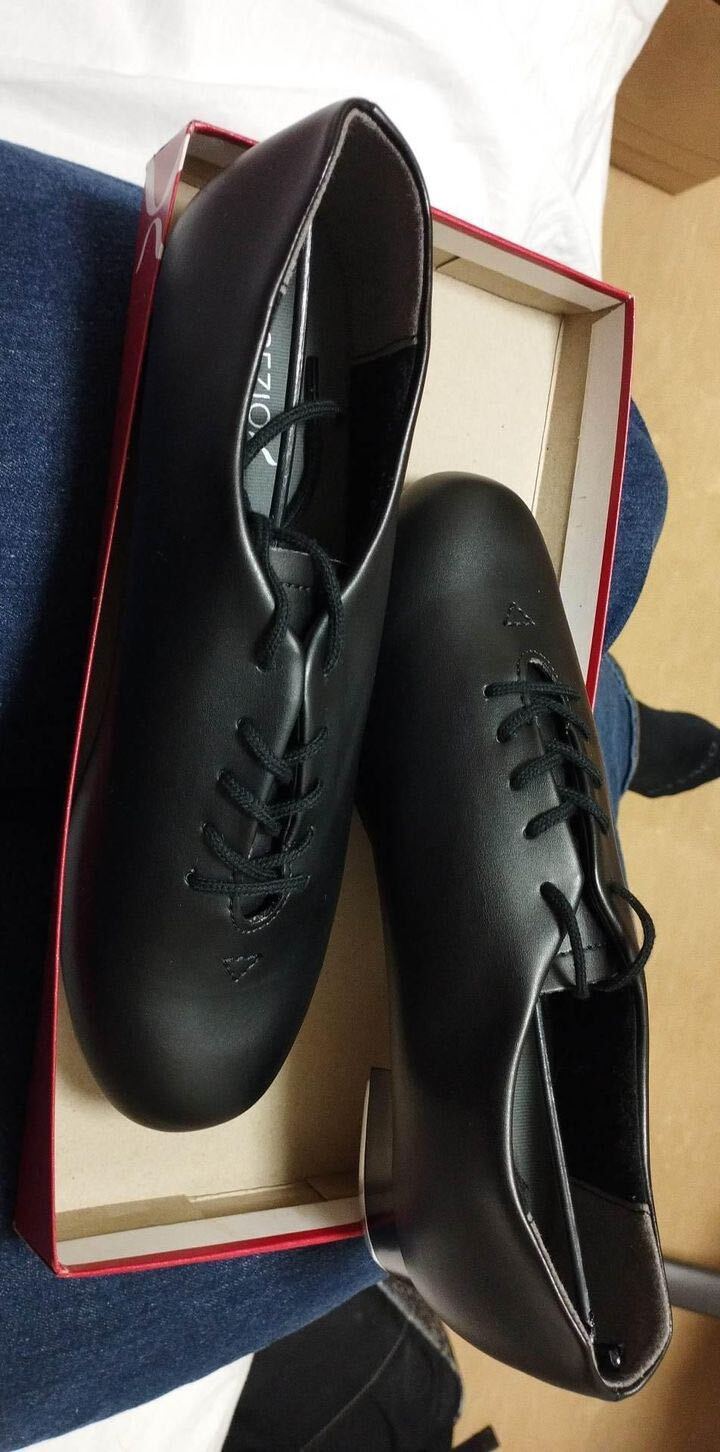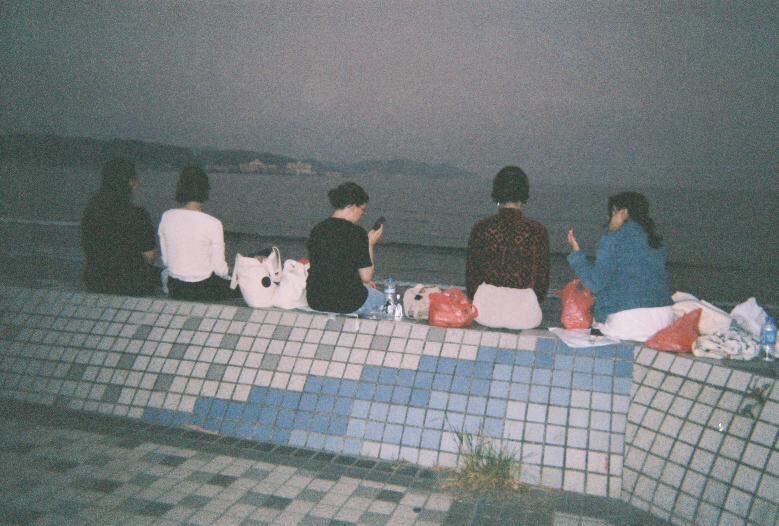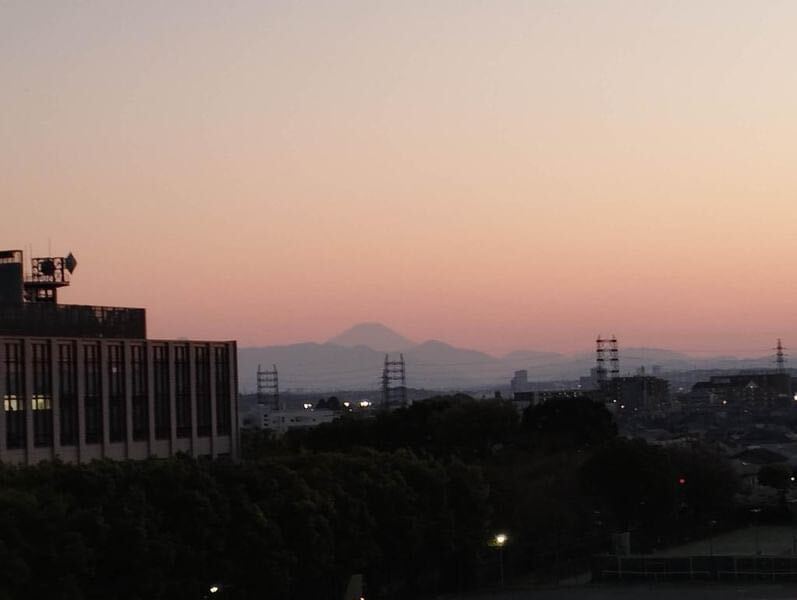Linguistics and Me: An Interview with Laura Maulmy from France.
外大生インタビュー

I interviewed Ms. Laura Maulmy, who has been studying linguistics as a six-month undergraduate exchange student at Tokyo University of Foreign Studies since April 2023. Laura loves linguistics and language learning so much that she came all the way from France to study in a foreign country, Japan. I take a closer look at her life in Japan, where her insatiable curiosity about linguistics led her to study abroad.
Interviewer: Yusei HASEGAWA, 2nd year students, School of Language and Culture Studies
Study at TUFS
–––Why did you decide to come to Japan to study?
I studied Japanese in high school and came to Japan during my senior year of high school to do a homestay in Yokosuka City for three weeks. At that time, I attended the high school in Yokohama where my host sister was attending and took French, English, and Spanish classes with her. On the weekends, I went to Kamakura with my host family to see the Daibutsu (Great Buddha) and went shopping in Harajuku with my French friends who were also homestaying in the city. Harajuku was a little scary because it was full of people, but it was very exciting and fun. It was my first experience to live abroad, away from my family in France, and I felt a lot of anxiety, but through this homestay in Japan, I discovered that I wanted to improve my Japanese language skills, learn more about Japanese culture, and get to know Japanese people better! This was a major deciding factor in my decision to come to Japan to study.

–––What are you studying at TUFS?
I originally studied linguistics at my French university. Language is one of the most important elements of our lives and one of the most important elements of communication that connects people to each other. My interest in analyzing the language we use without thinking from a microscopic perspective, such as phonetics and syntax, is what made me decide to study linguistics. Also, due to the nature of the field of scientific analysis of language, I was attracted to the research method of analyzing words as they are actually used by people in various ways of speaking found in certain social classes, rather than assuming that grammar or vocabulary are absolutely right or wrong.
At Tokyo University of Foreign Studies, I am studying linguistics and Japanese language, which I have originally studied as a major at the University of Bordeaux-Montaigne in France. In linguistics classes, I study second language acquisition theory and intercultural pragmatics. Japanese language classes include a class on kanji, a class on conversation practice, and a writing class. Of all the Japanese classes, I like the writing class the best. This is because in the Japanese writing class, we not only write sentences in Japanese, but we also have time to read the sentences, discuss them with a partner, and present them so we can learn Japanese systematically in one class.

–––What are your goals after graduation?
I am now in my third year of university, and I would like to go on to graduate school in Paris after I finish my studies in Japan. I am planning to learn as many languages as time permits, such as Portuguese, Italian, Spanish, and Xhosa which is a language spoken in the Cape region of South Africa. In addition, I am also interested in French language education, so I would like to learn about French teaching methods. I also hope to return to Japan someday through an internship. At this stage, in the future, I would like to become a French teacher in a foreign country.
Life in Tokyo
–––What kind of food do you usually eat?
In Japan, I prepare and eat my own food, mainly rice, tofu, and eggs. I am a vegetarian, but it is difficult to find food prepared for vegetarians in Japan, so I cook for myself. I sometimes go out to eat, and I was surprised at how inexpensive Japanese restaurants are.
Two Japanese ingredients that I particularly like are tofu and mochi (glutinous rice cake). I love the ease with which tofu can be used in a variety of dishes, and the chewy texture of mochi.

–––Please tell us about your clubs and part-time jobs.
I am a member of TUPS, the tap dance club at TUFS. I originally took modern jazz dance lessons from the age of 10 to 18, and as part of those lessons, I had the opportunity to learn about tap dance, which is how I decided to try tap dancing and joined TUPS. I was the only international student in the circle, and it was difficult to keep up with the conversations, which were mainly in Japanese. However, the circle members helped me by talking in simple Japanese that I could understand, or by rephrasing it in English. The circle activities also helped me to make Japanese friends and to practice my Japanese conversation skills. I felt my Japanese language skills growing through conversations using Japanese with the circle members.

–––How do you spend your time when you are not in class?
On my days off, I spend time studying at the university library, reading books at home, or watching TV. I also go out with friends to restaurants and for fun. Recently, I especially like going to karaoke. Karaoke is rare in France, so I got hooked on it when I came to Japan (laughs).

Me and Japan - Changed habits
–––What souvenirs would you like to buy for your family and friends when you return to your home country?
Many of my friends are anime fans, so I plan to buy a lot of anime goods. I myself love the anime "Naruto," so I would like to buy goods related to that. For my family, I would like to buy tableware and accessories with a typical Japanese cherry blossom motif. I can’t forget to buy some sake. I also want to buy Japanese food such as mochi and tea leaves. Japan has a wide variety of candies, so I would like to bring those back home as well.
–––Where would you recommend to visit in Japan?
I recommend Hinohara Village in Nishitama. I went there with some international students during Golden Week. It was a beautiful place in the mountains surrounded by many trees. It was a day trip by train, so we could not stay for a long time, but I really enjoyed walking around Hinohara Village surrounded by greenery. I wanted to visit Hossawa Falls, one of the top One Hundred Waterfalls in Japan, but I got lost at the time and couldn't go... (laughs). If I visit Hinohara Village again someday, I would like to try again.
–––Do you have any habits that have changed since you came to Japan?
One of the biggest changes since I came to Japan is, of course, a change in my eating habits. Instead of bread, I now often eat rice. In France, I mainly ate bread, but Japanese rice is so delicious that I never get tired of eating it every day. I have also learned to bow in various situations. When thanking people, greeting people, etc..... At first it was an unfamiliar habit, but now I bow naturally depending on the situation.
What has changed most is that, as an international student, I have visited various places in Japan to learn more about Japan, and I have become more confident in myself through actively communicating with Japanese people on my own. I have always been a shy person, so at first I was not very good at getting involved with people on my own. However, studying in Japan and taking the initiative to improve my Japanese language skills and deepen my learning taught me to believe in myself. I believe that this experience has become a great asset in my life.

–––Are you happy that you came to Japan to study?
Coming to Japan to study has been a great experience for me. Coming to Japan, meeting and interacting with so many people, and learning about them gave me an experience that I would never have had if I had just studied Japanese in France. Also, living in Japan was the perfect environment for me to improve my Japanese language skills, as I was naturally expected to use Japanese in my daily life. I believe that my Japanese language skills improved greatly during this study abroad period by being in an environment where I had to learn the language and practice conversations with native speakers.

After the Interview
I felt Laura’s enthusiasm about the discipline of linguistics and the joy of language learning, and I learned how interesting linguistics is as a field. As a member of the School of Languages and Culture Studies at TUFS, I will inevitably have to study language learning during my university years, so it was a great asset for me to rediscover its appeal. Thank you very much, Laura, for your cooperation in this interview.
Yusei HASEGAWA, 2nd year students, School of Language and Culture Studies

本記事は本学の「学生取材班」により準備されましたが、文責は、東京外国語大学にあります。ご意見は、広報マネジメント?オフィス(koho@tufs.ac.jp)にお寄せください。

